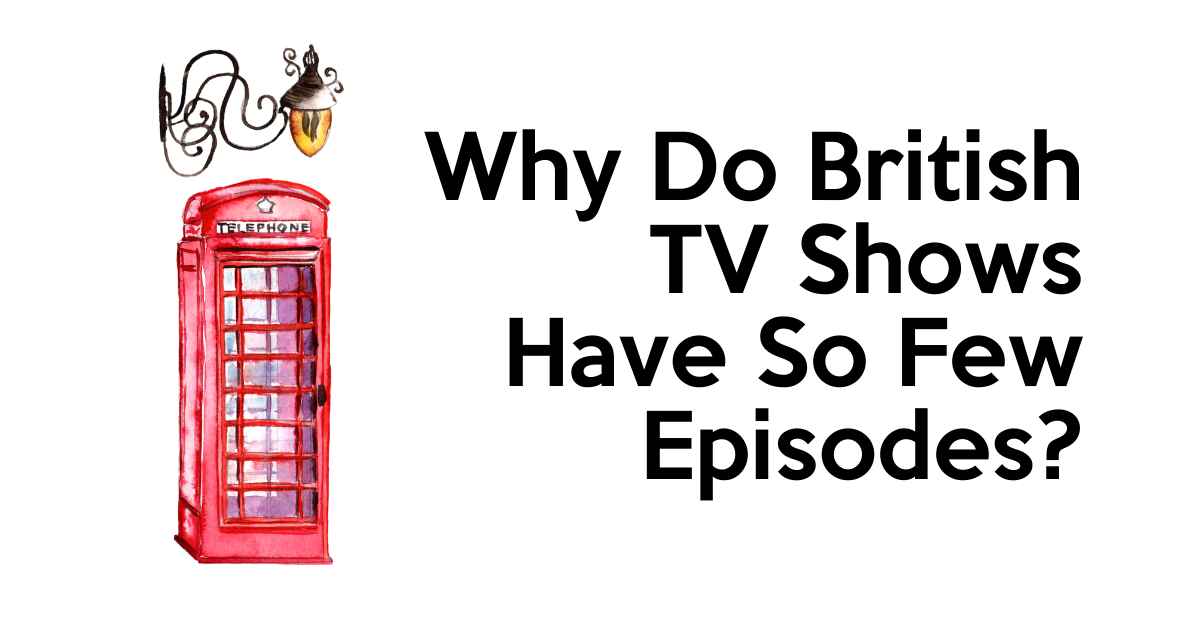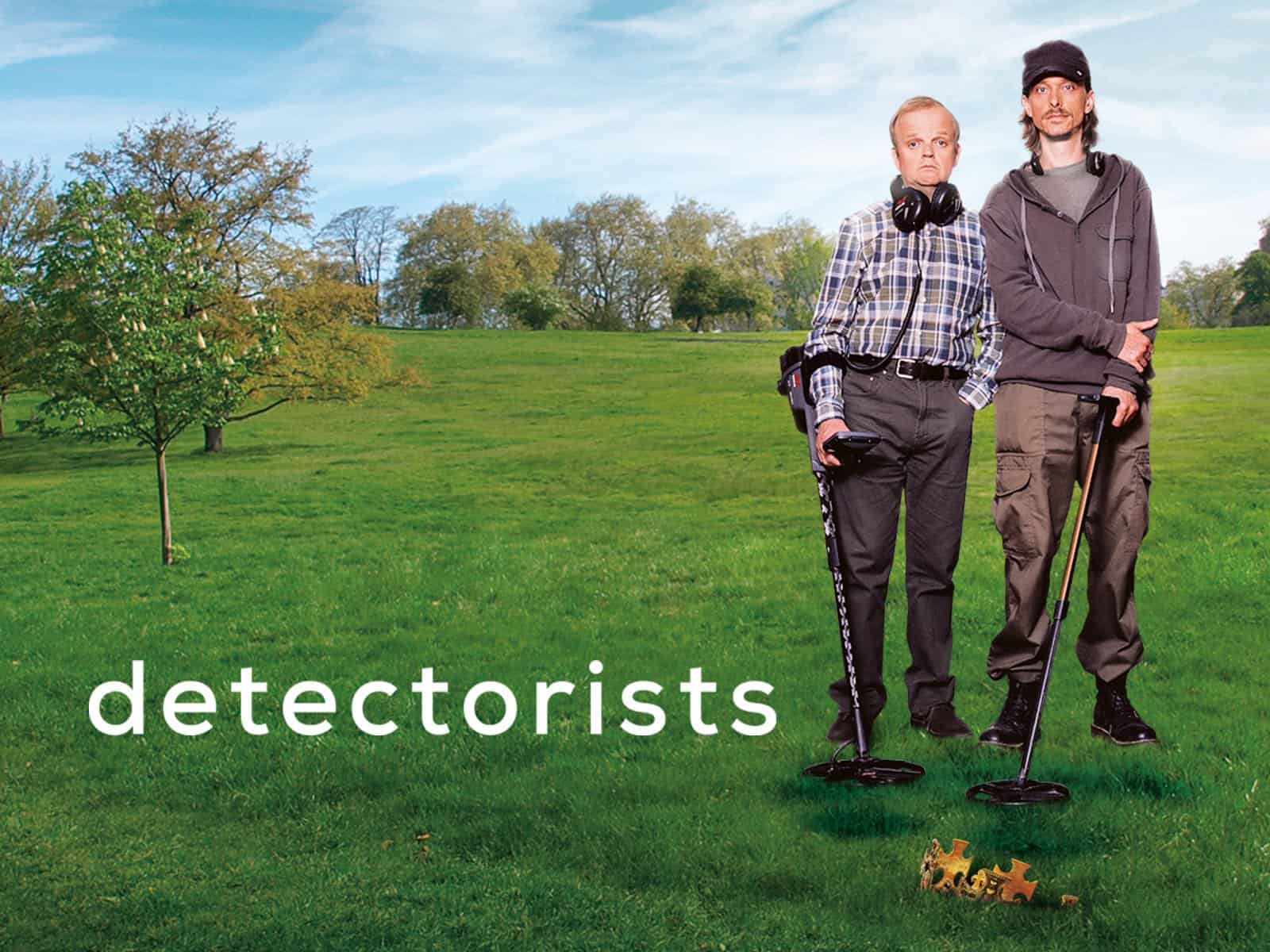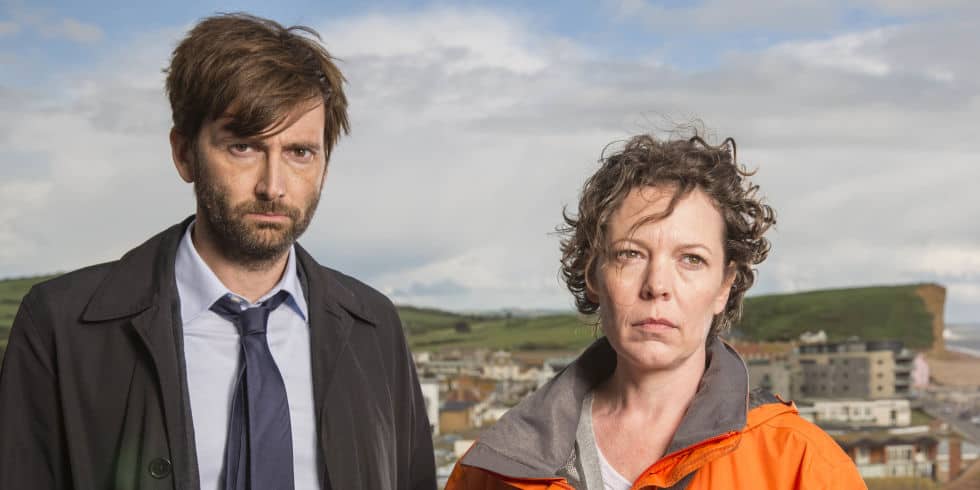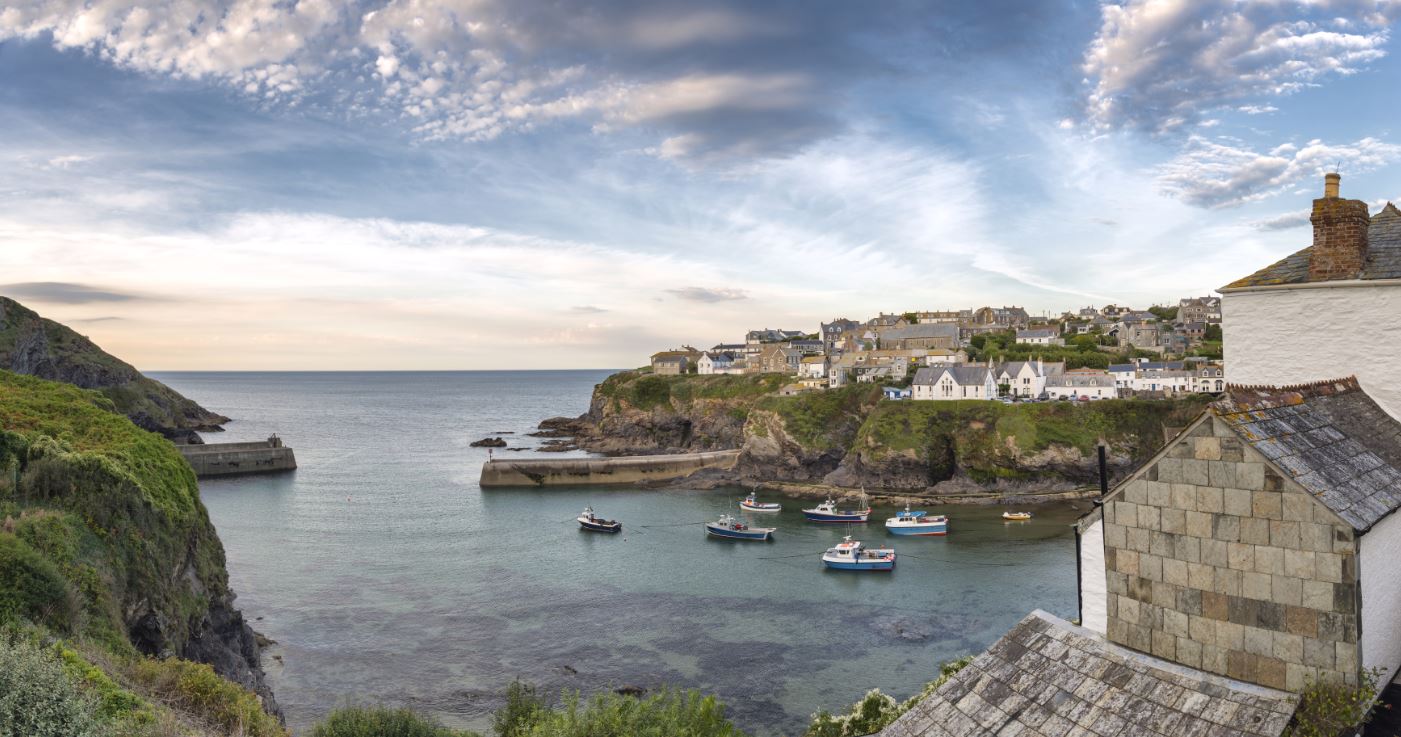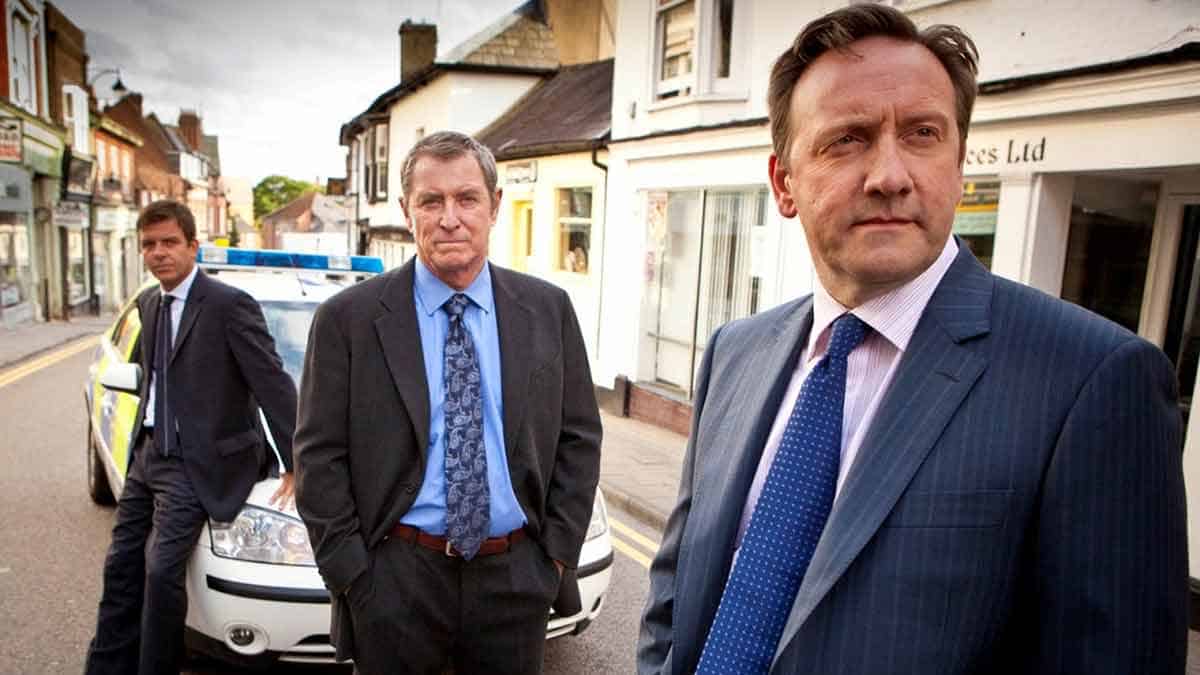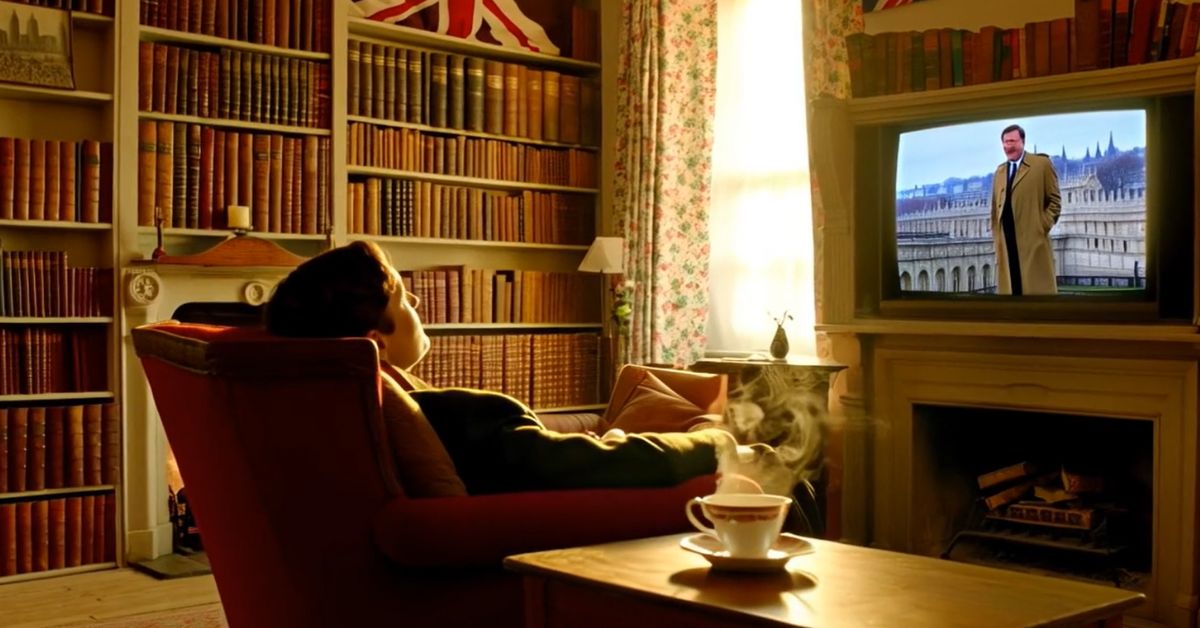Why Do British Shows Have So Few Episodes?
In some cases, we earn commissions from affiliate links in our posts.
Last Updated on February 26, 2020 by Stefanie Hutson
Running a British TV site with a mostly North American audience, there are certain questions we hear over and over again. Perhaps the most common of the lot is this: “Why do British shows have so few episodes?”
Usually, the question comes after someone's discovered a really great series, only to realize there are just a handful of episodes in each season. Indeed, some of the most well-loved British TV shows have fewer than 20 or 30 episodes. Fawlty Towers had just 12. Father Ted had 25. Broadchurch had 24. Fleabag is another that ended after just 12 episodes.
Midsomer Murders, while long-running, often has seasons of just 4 episodes. When you compare that to traditional American network shows that make 20+ episodes each season, it seems a bit miserly.
As a side note: British shows typically use the word “series” where American shows would say “season”. Because most of our readers are American, and because “series” can become a bit confusing for many, we typically opt for “season” as a matter of clarity for our readers.
Why DO British Shows Have So Few Episodes, Then?
There are a few reasons British shows are so short in comparison to many American series.
Smaller Creative Teams
In the US, most television shows are created in writers rooms where teams of writers work under a “showrunner”. Though each room is a little different, they typically work together to figure out the overall story and the basics of episodes, then different people will do the main task of writing each episode.
In the UK, where a season might have just 4-8 episodes, it's much more common to see shows written by just one or two people. You're not going to get 25 episodes out of 1 person in a year's time. Well, you might, but the quality will likely suffer – as will the writer.
In many cases, you might even see one of the actors doing the writing. Some examples:
- Miranda – written by Miranda Hart
- Fleabag – written by Phoebe Waller-Bridge
- Gavin & Stacey – written by Ruth Jones and James Corden
- Don't Forget the Driver – written by star Toby Jones and Tim Crouch
- The Cafe – written by Ralf Little and Michelle Terry
- Detectorists – written by Mackenzie Crook
- The Office (UK) – written by actors Ricky Gervais and Stephen Merchant
- Everything Monty Python
Now, there ARE some notable exceptions to this. American TV has been changing a lot in recent years, and much of the new stuff is done more like British TV – fewer, more focused episodes and smaller writing teams. Premium cable networks like HBO and Showtime have been doing this for a while now, and we're also seeing it from streaming services like Netflix and Amazon's Prime Video. Examples include The Marvelous Mrs. Maisel, Chernobyl, Goliath, The Man in the High Castle, and even the latest season of Lucifer, produced by Netflix (which stars British Miranda star Tom Ellis).
It's also not totally accurate to say all British shows have a small number of episodes. Soap operas, game shows, talk shows, and children's shows tend to have loads of episodes. At time of writing, Coronation Street is up to 10,013 episodes. EastEnders has 6084, and Emmerdale is around 8720.
Some long-running shows have also racked up large episode counts. Last of the Summer Wine is, to date, the longest-running sitcom in the entire world. All 295 episodes were written by one man, Roy Clarke (the same talented guy who brought us Open All Hours and Keeping Up Appearances). I know a lot of people think TV writing is a fluff career, but just think of all the smiles he has created with his work!
There's one HUGE upside to small creative teams, though. When you have a team of 10 people trying to write a series – especially comedy – a lot of the unique little personal quirks disappear. There's a tendency for group work to lead to lots of compromise in an attempt to make everyone happy with the end result. When it's just one or two people writing, you get a lot of material that's very quirky and personal.
Can you imagine Detectorists making it through a big American committee trying to appeal to some focus group? I used to do a lot of marketing and copywriting for big corporate clients, and I've seen what happens to unique ideas when they pass through a large group. It's a lot like this…
Smaller Budgets
In the UK, a lot of television is funded via TV license instead of advertising. Salaries and budgets are smaller across the board – which is why it's not uncommon to see many of the most popular or conventionally attractive British actors running off to Hollywood at the first opportunity.
Even for shows that aren't funded by TV licenses, though, you're still looking at a smaller budget. Why? A lot of it comes down to population. The UK's population is a little over 65 million. In the US, it's around 325 million. Advertisers pay more to reach a bigger audience. As international distribution and revenue opportunities continue to grow, this is likely to be less of a factor.
Often, it comes down to simple mathematics. You can make a lot of really focused, unique, interesting 6-episode seasons, or you could commit the same amount of money to just one or two 20+ episode programmes. With a broader variety of shows, you're able to test more concepts and provide content that suits a wider audience.
Less Interest in Filler
Next time you're watching a 20+ episode season of an American TV show, pay attention to what's happening in the episodes. Nearly always, you'll find that only a fraction of the episodes contribute to the larger, overall plot.
Generally speaking, you'll find that season premieres and finales have big action – deaths, marriages, divorces, chases, and other things that excite viewers and do more to advance the overarching storyline. In between, you'll see a few episodes that reignite those bigger storylines, but most episodes will be filler. Often, you could remove or rearrange them within the show's timeline and have little to no impact on anything important.
British TV is about delivering, every single time. Not every show has a storyline that carries on from one episode to the next, but when they do, you don't typically see them “forget about it” for a few episodes and then come back to it later.
That's not to say filler episodes can't be enjoyable to watch, just that it's not something commonly done in British TV. I should also point out again that American TV has been changing in recent years, and there are more American shows than ever without filler episodes – just look at streaming services and premium cable.
Another thing you'll notice about British shows is that you'll often hear interviews with writers and directors who say something like, “We'd reached the end, and we didn't want to overstay our welcome.” Shows like Fleabag, Fawlty Towers, and The Good Life all ended because the creators felt it was a good place to stop. British TV is very creator-driven.
In the US, it's relatively rare for writers to have any real ownership over their shows – and networks find it very hard to let a hit show stop. They often keep going until it's almost painful to watch. You could have an entire team of writers who think it's time to put a show out of its misery, but if loads of people still want to see it, the network is going to get SOMEONE to make it happen.
Shorter Filming Seasons
The Brits do a MUCH better job of using their country's scenery in TV. They have a massive creative network, and they film all over the place – from the seaside villages of Cornwall to the far northern Shetland Islands in Scotland. It's a relatively small country, so it's not wildly expensive or logistically challenging to do that. The UK does have some shows filmed in studios, but they do a LOT on location. It's one of the (many) reasons so many non-Brits love to watch their shows.
When you do a lot of filming on location, you're at the mercy of the weather. BRITISH WEATHER. Between the rain and the cold and the challenges of working with different locations and permissions, it makes a lot of sense to have fewer episodes per series.
Lengthy Episodes
This isn't a factor for all British TV shows, but many dramas – especially mysteries – have incredibly long episodes compared to American TV. In the US, most shows are either 20-25 or 40-45 minutes long. In the UK, there are more than a few shows with 60-90 minute episodes.
Midsomer Murders is a great example. Every episode is basically a movie, and they all have varying filming locations. Compare that to something like an American sitcom where episodes are 20 minutes long and filmed on the same set most of the time. It's just a very different way of doing things.
A Different Way to Think About British TV Shows & Their Short Seasons…
Now that you know the things that factor into shorter seasons for British TV shows, it's worth trying to think about it a little differently. Instead of being sad that a show you love has just 20 or 30 or 40 episodes, realise that the smaller episode count may be part of WHY you love it so much.
If they'd made 20+ episodes, they might have had to shift from filming on location to filming in a studio set. They almost definitely would have needed to bring in a full writing team, and it might have lost much of the character you fell in love with. At 20+ episodes/year, there probably would have been a bunch of filler episodes to keep the main storylines from progressing too quickly.
If every British show had 20+ episodes, actors wouldn't be able to work on as many different shows, and you wouldn't have so much fun following them from show to show and lighting up when you recognise a favourite.
British TV is very different from American TV, but variety is a good thing. I'll admit I've often wished there were more episodes of my favourites, but I certainly wouldn't want them if it had meant altering their character.
Save it to Pinterest!

